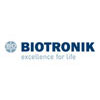
Cardiovascular medical device maker Biotronik unveiled clinical results from its Effectiveness & Cost of ICD Follow-Up Schedule with Telecardiology trial, which showed that the company’s home monitoring system reduced inappropriate implantable cardioverter defibrillator shocks by 52% while extending the device’s battery-life.
"Developing safe, innovative, effective therapies to improve patient health is Biotronik’s number 1 priority," Biotronik international president Christoph Böhmer said in prepared remarks. "Biotronik Home Monitoring enhances the patient’s quality of life and simplifies patient treatment."
The study was based on 433 patients from 43 sites throughout France, who were followed over a period of 27 months.
The 221 home-monitored patients were brought in to an ambulatory department once per year and the 212 control patients underwent in-office visits every 6 months, according to a press release.
Researchers found that home-monitored patients received 71% fewer shocks over a period of 2 years and 52% fewer inappropriate shocks compared with the control group, Biotronik reported.
The ECOST study also showed a 76% reduction in the number of device capacitor charges for the home monitoring group, which could help protect ICD battery life and extend device longevity, according to the press release.
That’s more good news for Biotronik, which recently landed a few regulatory wins for other heart devices.
The Lake Oswego, Ore.-based company in November won FDA investigational device exemption and announced the 1st U.S. implant of its latest-generation Pulsar-18 self-expanding stent.
The company in May landed FDA approval for its next-generation series of implantable heart devices, announcing the win at this year’s Heart Rhythm Society conference in Boston.

